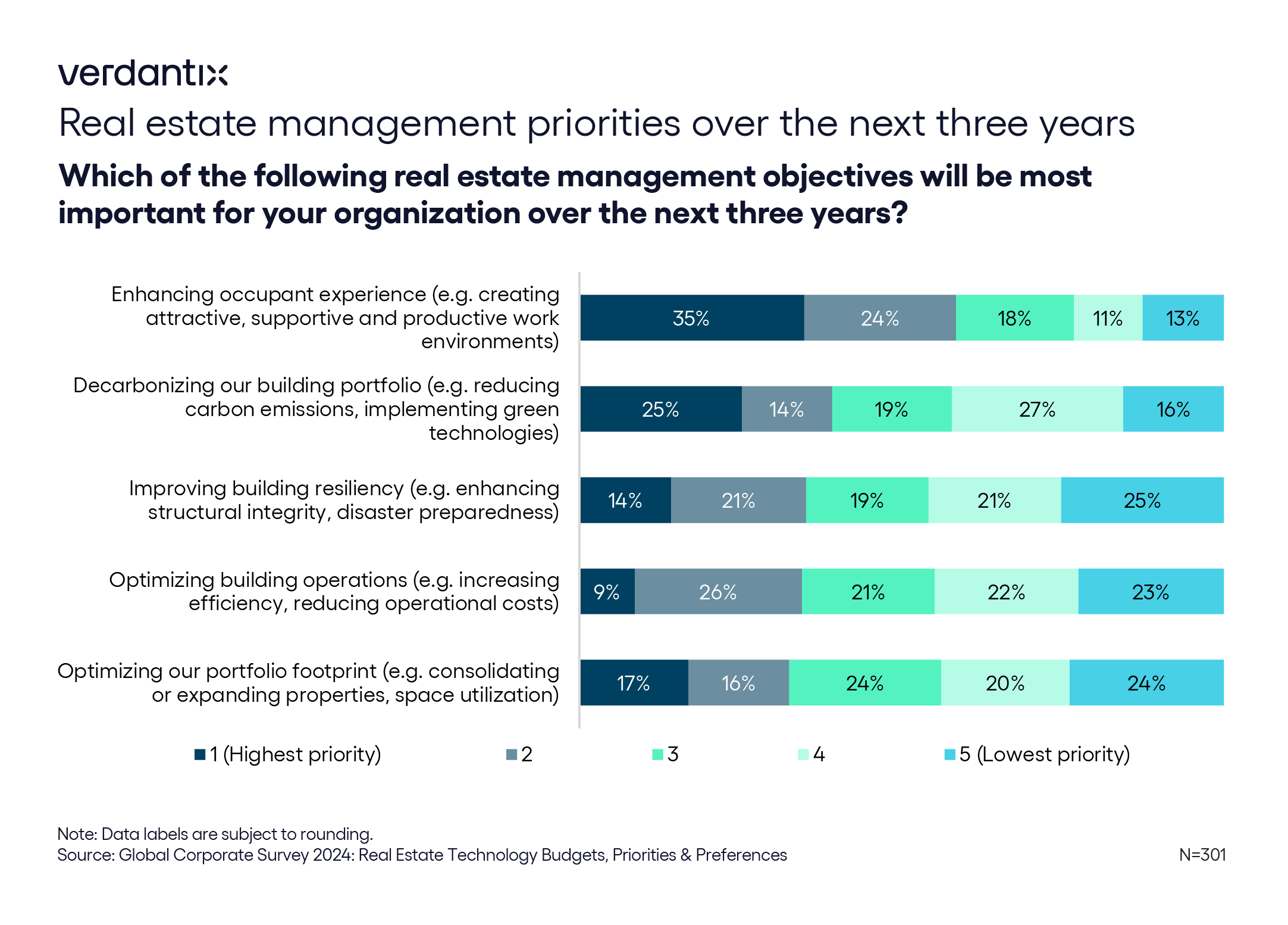Occupant Experience Takes The Lead As The Top Priority In Corporate Real Estate

Ben Readman
Corporate real estate remains in a spin. Decision-makers continue to be pulled in different directions, with a mounting set of short- and long-term objectives vying for attention. Real estate and facilities teams are performing a juggling act, attempting to balance issues relating to sustainability and decarbonization, occupant experience, resiliency, operational efficiency and right-sizing – among other pressing concerns. While corporate real estate managers will say that all of these are important, with limited hands, priorities must be set, and trade-offs accepted.
Over the three years to 2024, there was no obvious primary concern in the industry. Firms stepping out of the pandemic into a world characterized by hybrid working, rising inflation, energy price volatility and increasing regulation struggled to prioritize initiatives. The Verdantix global surveys of corporate real estate and facilities decision-makers in 2022 and 2023 found only marginal differences in the ranking of key objectives at the global level. However, as businesses have found their feet in this volatile environment, the confidence to prioritize and create a strategy has built. A soft consensus on a top priority – occupant experience – is now surfacing.
More than a third of corporate real estate decision-makers in our 2024 global survey put occupant experience as their top priority over the next three years, up from 21% in 2023, and the highest among the objectives surveyed. The pressure is now on for corporate real estate to prove itself a value driver for the business, and to demonstrate agility in quickly adapting to ever-changing working patterns. Efforts to improve experience will be based in pragmatism, focused on improving space utilization and supporting the wide range of working practices expected of modern workspaces, over the somewhat gimmicky ‘novelty’ amenities offered in the return to the office post-pandemic. This is evidenced by 66% of our survey respondents noting plans to boost efforts to optimize how spaces are used by occupants, compared with just 32% planning to increase initiatives to improve wellbeing and experience specifically. Firms are now aiming to drive better experience through usability.

With workplace occupancy on the rise, businesses are once again seeking to prioritize the short over the long term. Improving spaces for occupants will take centre stage in many corporate real estate strategies. Research from JLL highlights the challenge, with 41% of firms still showing that real estate is perceived as a cost, rather than a value driver. In the near term, spaces will be redesigned to be more resilient and adaptable. Simultaneously, 2025 will be the year in which real estate and facilities professionals aim to meet the challenge of providing data and metrics that demonstrate the value and contribution of real estate to business growth – at a time when the existential value of real estate, and of offices especially, is under threat.
Check out the full Verdantix global survey report, with findings on corporate real estate priorities, market trends, management strategies and technology investment plans, here.
About The Author

Ben Readman
Industry Analyst





